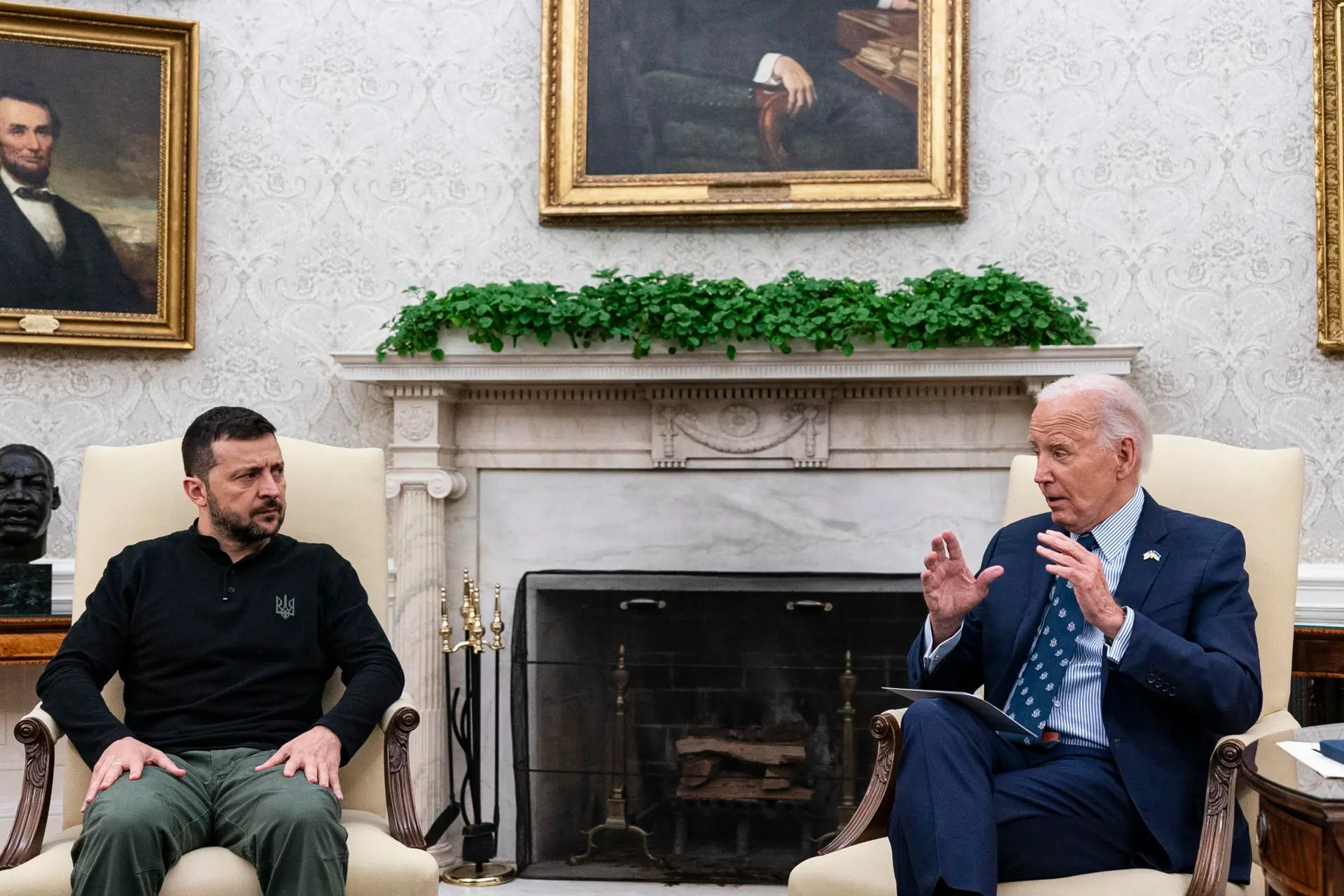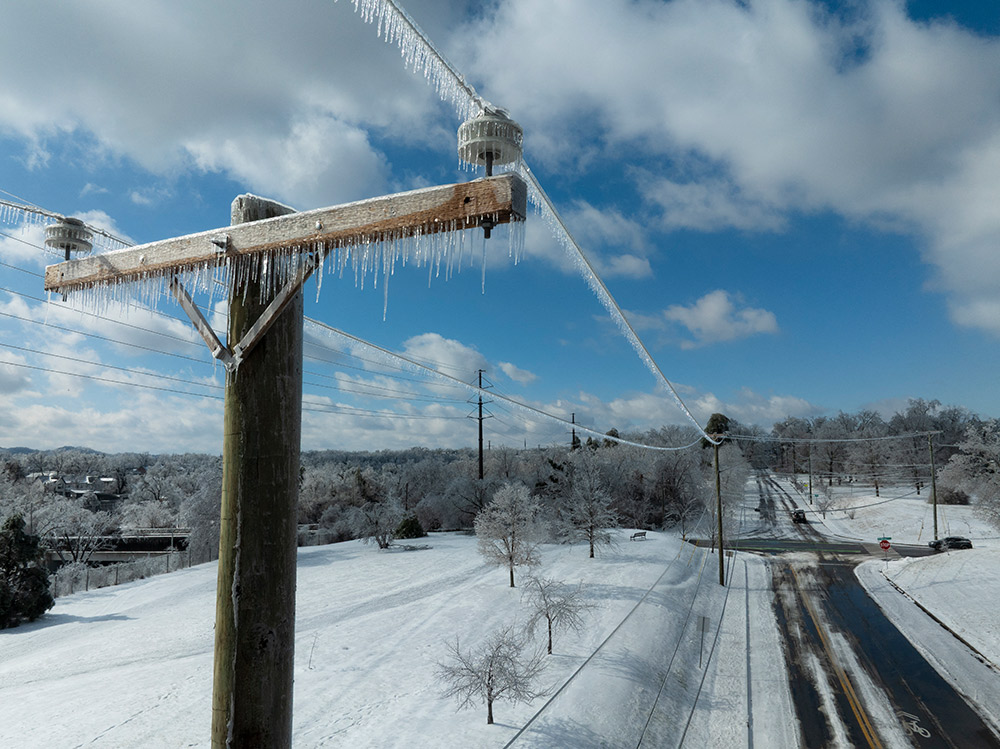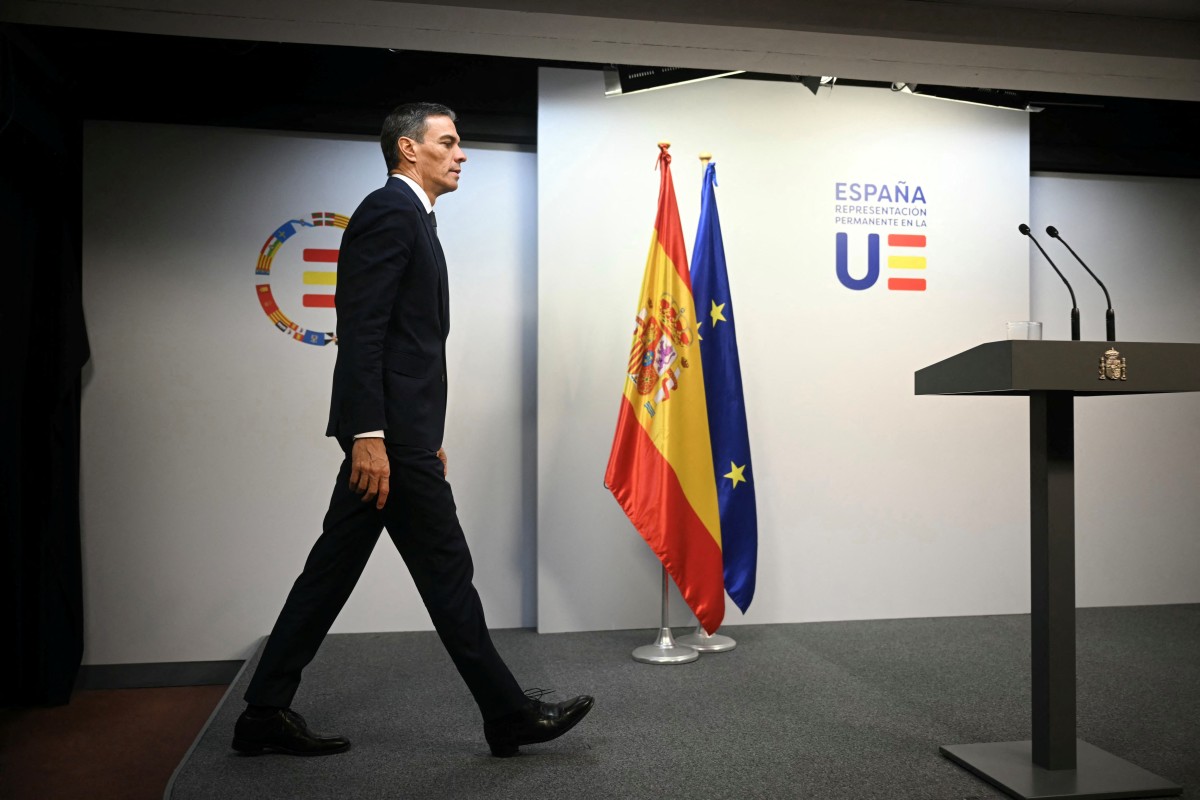International
Zelenski proposes a partial truce with Russia in the face of the coldness of the West to its ‘Victory Plan’

Faced with the general coldness towards his ‘Victory Plan’, which calls for urgent military aid to force Russia to negotiate a peace that does not involve the transfer of Ukrainian territories, President Volodymyr Zelensky has openly raised for the first time since the beginning of the war the possibility of negotiating with Russia a partial truce that would lower the intensity of the conflict.
“We don’t attack their energy infrastructure and they don’t attack ours. Could this bring this to an end to the hot phase of the war? I think so,” Zelenski said last week in a meeting with journalists.
According to Anglo-Saxon media published this week that cite sources familiar with the process, representatives of Ukraine and Russia would have already initiated contacts for this cessation of mutual attacks against energy-related targets that would give Kiev guarantees to face the winter without new bombing of its power plants and would put an end to the destruction with Ukrainian drones of Russian refineries.
These talks for a truce in this chapter would be the resumption of a process that would have already taken place this summer with the mediation of Qatar, which continues to facilitate contacts, and which derailed, as it was said at the time, due to the beginning in early August of the Ukrainian cross-border operation in the Russian oblast of Kursk, where Kiev controls part of the territory.
One of the points of the “Peace Formula”
Guaranteeing energy security is one of the ten points of the so-called Ukrainian Peace Formula, a document composed of ten proposals among which the demand that Russia withdraw from all the territories it occupies in Ukraine stands out.
The ‘Peace Formula’ was discussed at a first international summit held in June in Switzerland.
The issue of energy security (specifically nuclear) was, along with the requirement to allow freedom of navigation in the Black Sea and the Sea of Azov to guarantee food exports, one of the three points included in the final communiqué, which was signed by about 80 countries and international organizations.
The third point endorsed by the signatories was the one that proposes the release of all prisoners of war on both sides and the return to Ukrainian territory of adults in Russian captivity and deported or displaced children.
No positive signals from its partners
The so-called Victory Plan presented by Kiev asks its allies to immediately provide the Ukrainian Army with sufficient military equipment and long-range weapons to stabilize the front and begin attacking Russian territory more systematically.
According to Kiev’s calculations, if its main partners materialize the plan, Russia would be forced to sit down to negotiate the ‘Peace Formula’ in a second international summit that Ukraine aspires to organize before the end of the year.
None of Ukraine’s allies capable of providing this level of military aid has shown signs of being interested in meeting these demands of Kiev, which for the moment has to make do with staying on the defensive at the front while opening up to a specific commitment that will not put an end to hostilities but would help both parties to cope with the wear and tear of two long years of war.
International
Winter Storm Fern Leaves 30 Dead and Over One Million Without Power Across the U.S.

The massive winter storm Fern, bringing polar temperatures, battered large portions of the United States for a third consecutive day on Monday, leaving at least 30 people dead, more than one million households without electricity, and thousands of flights grounded.
In the Great Lakes region, residents awoke to extreme cold, with temperatures dropping below -20°C. Forecasts indicate that conditions are expected to worsen in the coming days as an Arctic air mass moves south, particularly across the northern Great Plains and other central regions, where wind chills could plunge to -45°C, temperatures capable of causing frostbite within minutes.
Across the country, heavy snowfall exceeding 30 centimeters in roughly 20 states triggered widespread power outages. According to PowerOutage.com, nearly 800,000 customers remained without electricity on Monday morning, most of them in the southern United States.
In Tennessee, where ice brought down power lines, approximately 250,000 customers were still without power. Outages also affected more than 150,000 customers in Mississippi and over 100,000 in Louisiana, as utility crews struggled to restore service amid dangerous conditions.
International
Spain approves plan to regularize up to 500,000 migrants in Historic Shift

In November 2024, Spanish Prime Minister Pedro Sánchez announced a reform of the country’s immigration regulations aimed at regularizing 300,000 migrants per year over a three-year period, in an effort to counter population aging in a country where births have fallen by 25.6% since 2014, according to official data.
Going against the trend in much of Europe, Spain’s left-wing government has now approved an exceptional migrant regularization plan that could benefit up to 500,000 people, most of them from Latin America.
The measure will allow the regularization of around “half a million people” who have been living in Spain for at least five months, arrived before December 31, 2025, and have no criminal record, Migration Minister Elma Saiz explained on public television.
The plan, approved on Tuesday by the Council of Ministers, establishes that applications will be processed between April and June 30, enabling beneficiaries to work in any sector and anywhere in the country, Saiz said.
“Today is a historic day for our country. We are strengthening a migration model based on human rights, integration, and one that is compatible with economic growth and social cohesion,” the minister later stated at a press conference.
The socialist government of Pedro Sánchez stands out within the European Union for its migration policy, contrasting with the tightening of immigration measures across much of the bloc amid pressure from far-right movements.
Central America
Honduras swears in conservative president Asfura after disputed election

Conservative politician Nasry Asfura assumed the presidency of Honduras on Tuesday with an agenda closely aligned with the United States, a shift that could strain the country’s relationship with China as he seeks to confront the economic and security challenges facing the poorest and most violent nation in Central America.
Asfura’s rise to power, backed by U.S. President Donald Trump, marks the end of four years of left-wing rule and secures Trump another regional ally amid the advance of conservative governments in Chile, Bolivia, Peru, and Argentina.
The 67-year-old former mayor and construction businessman was sworn in during an austere ceremony at the National Congress, following a tightly contested election marred by opposition allegations of fraud and Trump’s threat to cut U.S. aid if his preferred candidate did not prevail.
Grateful for Washington’s support, Asfura—who is of Palestinian descent—traveled to the United States to meet with Secretary of State Marco Rubio, before visiting Israeli Prime Minister Benjamin Netanyahu.
“We need to strengthen relations with our most important trading partner,” Asfura said after being declared the winner of the November 30 election by a narrow margin, following a tense vote count that lasted just over three weeks.
-

 Central America2 days ago
Central America2 days agoGuatemala seizes over a ton of cocaine hidden in flour at Pacific port
-

 Central America4 days ago
Central America4 days agoGuatemala’s president rules out negotiations with inmates after prison riots
-

 International4 days ago
International4 days agoTrump-Era Defense Plan Prioritizes Border Security and Scales Back Global Commitments
-

 Internacionales4 days ago
Internacionales4 days agoMajor winter storm threatens “catastrophic” ice and snow across much of the U.S.
-

 International4 days ago
International4 days agoBogotá and Quito Seek Dialogue After Tariffs and Power Cut Escalate Tensions
-

 International3 days ago
International3 days agoDelcy Rodríguez seeks political agreements after Maduro’s ouster
-

 International4 days ago
International4 days agoGuatemala considers sending high-risk gang members to military prisons
-

 International2 days ago
International2 days agoHistoric snowstorm paralyzes Toronto after 60 centimeters of snow
-

 International2 days ago
International2 days agoSpain’s irregular migrant population rises to 840,000, study finds
-

 International3 days ago
International3 days agoFederal immigration agents kill man in Minneapolis, sparking protests and outrage
-

 Central America13 hours ago
Central America13 hours agoGuatemala Police Arrest Prison Guard Caught in the Act of Extortion
-

 International4 days ago
International4 days agoRights group says over 5,000 killed in Iran protests, mostly civilians
-

 International13 hours ago
International13 hours agoWinter Storm Fern Leaves 30 Dead and Over One Million Without Power Across the U.S.
-

 International14 hours ago
International14 hours agoDoomsday clock moves to 85 seconds before midnight amid rising global risks
-

 International2 days ago
International2 days agoRights group says nearly 6,000 killed in Iran protest crackdown
-

 Central America14 hours ago
Central America14 hours agoHonduras swears in conservative president Asfura after disputed election
-

 Sin categoría13 hours ago
Sin categoría13 hours agoEight Killed in Series of Armed Attacks in Ecuador’s Manabí Province
-

 Central America14 hours ago
Central America14 hours agoBukele leads public trust rankings as UCA survey highlights gains in security
-

 International2 days ago
International2 days agoVenezuela frees at least 80 political prisoners, NGO says
-

 International13 hours ago
International13 hours agoSpain approves plan to regularize up to 500,000 migrants in Historic Shift
-

 International2 days ago
International2 days agoEU launches new probe into X over AI-generated fake nude images
-

 Sin categoría13 hours ago
Sin categoría13 hours agoEl Salvador Launches Fourth Year of Ocean Mission to Protect Marine Ecosystems
-

 International2 days ago
International2 days agoSevere winter storm grips U.S., leaves multiple dead as extreme cold persists
-

 International2 days ago
International2 days agoFrance debates ban on social media for children under 15


























